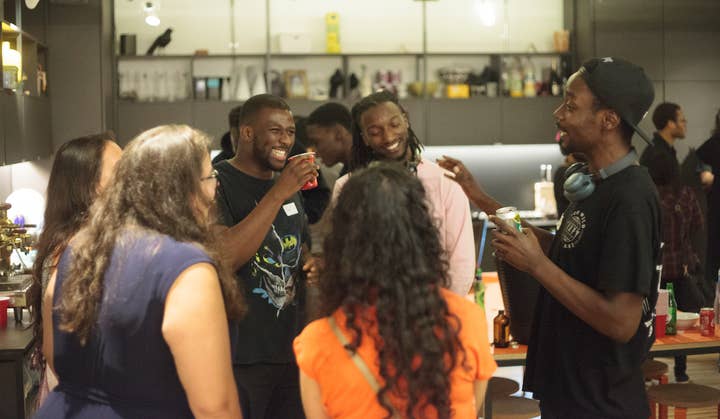Lifting the barriers for Black professionals in the games industry
Focusing on retention and promotion, the GamesIndustry.biz Academy looks at the barriers facing Black talent in games
"If you're feeling burnt out as a white person talking about race, just imagine how tired we are."
This quote can be attributed to presenter, producer and Level Up Link Up founder Shay Thompson; it's also the resounding feeling expressed by Black people across the games industry, and well outside its boundaries.
It's now been five months since the Black Lives Matter movement was rekindled by the death of George Floyd, a 46-year-old African American who was killed while in police custody. And while the fight against police brutality disproportionately affecting Black people has by no means diminished, the interest for it certainly has.
Back in June, there was an outpouring of support from the games industry, ranging from statements to donations, to promoting inclusion programmes. However, we did question at the time what it really meant for games companies to say that "Black Lives Matter" -- us included. The industry is notoriously young, male, and white -- us included. And while some studios have undoubtedly taken these lessons onboard to build a better workplace going forward, the discourse has quietly moved on; for some companies the Black Lives Matter movement was only a moment suspended in time before moving on to the next big thing.
"If you're feeling burnt out as a white person talking about race, just imagine how tired we are."Shay Thompson
Systemic racism in our societies means some issues overly affect Black people, and the industry needs to hold itself accountable. Showing that games is a viable professional career to a wider range of educational institutions, changing our recruitment practices to have access to a larger pipeline of talent, and addressing the racism within our companies will all be instrumental to an in-depth change leading to a better inclusion of Black people.
"Imagine how tired we are having to work in an industry that isn't reflective of what our lives and society looks like," Thompson continues, speaking to the GamesIndustry.biz Academy. "It is exhausting. It has been exhausting for you guys to read it for a little bit, but it has been 20 times worse to live through it."
Not being represented is also what fuelled streamer, producer, creative director and journalist Tanya DePass to create the non-profit organisation I Need Diverse Games.
"The [games industry] staff and executive levels should not be all white, but actually reflective of people who are playing their games," she says. "When your staff and C-level aren't inclusive, then you're going to wind up without the needed voices in the room."
The latest Developer Satisfaction Survey from the International Game Developers Association highlights that people identifying as Black, African-American, African or Afro-Caribbean only represented 2% of the US games industry in 2019. As a comparison, in the 2018 US Census data, 13% of the population identified as Black. In the 2020 UK Games Industry Census, trade body UKIE noted that "the fraction of Black people working in games, at 2%, is lower than the fraction of Black people in the working-age population at 3.4%."
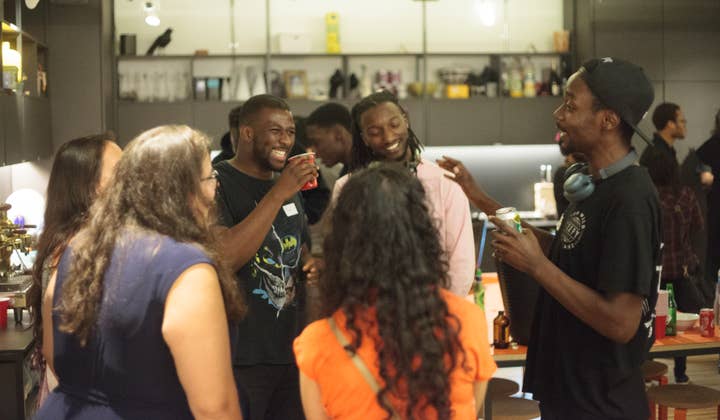
Until this 2020 census, data about diversity in the UK games industry was extremely dated, which is what motivated Ustwo producer Michael Anderson to become a founding member of POC in Play.
"Part of what we wanted to do was at least start that conversation, ask and challenge the industry to take a look at themselves, and be like: we would like you to reveal your statistics in this area," he says. "But I think the main thing was just to change that number. It was a definite sense of a lack of representation at almost all levels."
Natasha Broomfield-Reid is an equality, diversity and inclusion trainer at RightTrack Learning, which provides coaching to various industries -- including games -- on issues such as inclusive leadership, unconscious bias, and mindfulness and wellbeing. She also is the founder and director of Diverse Matters.
"The more diversity you have, the more creative and innovative you are"Natasha Broomfield-Reid
"There's so much research out there that shows that the more diversity you have, in particular race diversity, the more creative and innovative you are," she says. "Leaders need to take responsibility. It's not about saying: 'Oh gosh, we agree, Black Lives Matter is a great movement.' It's about what you're going to do about it. About being an activist in a positive way.
"What actions are you going to take to change the dial, to get things changed, to move forward? Because we can all sit there and say we support Black Lives Matter, but what actual activities in your organisation are you doing to change that? How are you hearing lived experiences from Black people, who are not having the same privileges [as] non-BAME [Black, Asian and Minority Ethnic] people, for example?"
Here we'll specifically address some of the issues affecting Black professionals in the games industry, and the barriers they face in terms of retention and promotion.
What are the issues and barriers facing Black people in games?
- The games industry has a culture fit problem
Not only does the games industry have very few Black people in its workforce, but they're particularly lacking in positions of leadership. Looking at the UK games industry 2020 census, the BAME category (there was no granular racial breakdown within this group) represented 13% of the junior roles, but only 6% of the CEO positions.
One of the reasons why Black people may not typically be found in senior roles in the games industry is because of "culture fit" -- the idea of figuring out how well an individual and their values will fit into an existing team. We've all heard it at least once: studios are always looking for the right "culture fit" when hiring or promoting someone into a new position. But when a company is overwhelmingly white, especially at senior levels, that inevitably means the standard is set by white people and that the culture fit is intrinsically biased against other racial groups.
"Culture fit is bullshit. It's code for not having to change behaviours that could be racist [or] homophobic"
Tanya DePass
"Culture fit is bullshit," DePass says. "It's code for not having to change behaviours that could be racist, homophobic, and so on. It's often an excuse given when there's someone the hiring manager wants to bring in that may or may not be qualified, but is usually a friend of someone that is owed a favor. It's code for 'you're not white/straight/neurotypical and we can't be bothered to make changes to make people comfortable in the studio and want the status quo to continue'."
Thompson adds that culture fit often means fitting into a very narrow set of ideals from which Black people are typically excluded.
"As a Black person, I know that going into work places, there was a period in time where I was very scared to wear my natural hair," she says. "I did, and obviously I got questions, which I feel is par for the course. But for a long time I just felt I couldn't wear my natural hair and that's the kind of thing I think about when I see 'culture fit'.
"A lot of people say: 'It's totally a problem that we don't have any Black people here and we'd love to have more diverse voices on board.' But then as soon as people are brought onboard -- people of colour, and specifically Black people -- we have to take and mold ourselves to try and fit into this culture that's happening. It might not be overt necessarily, but there is a lot of that for sure."
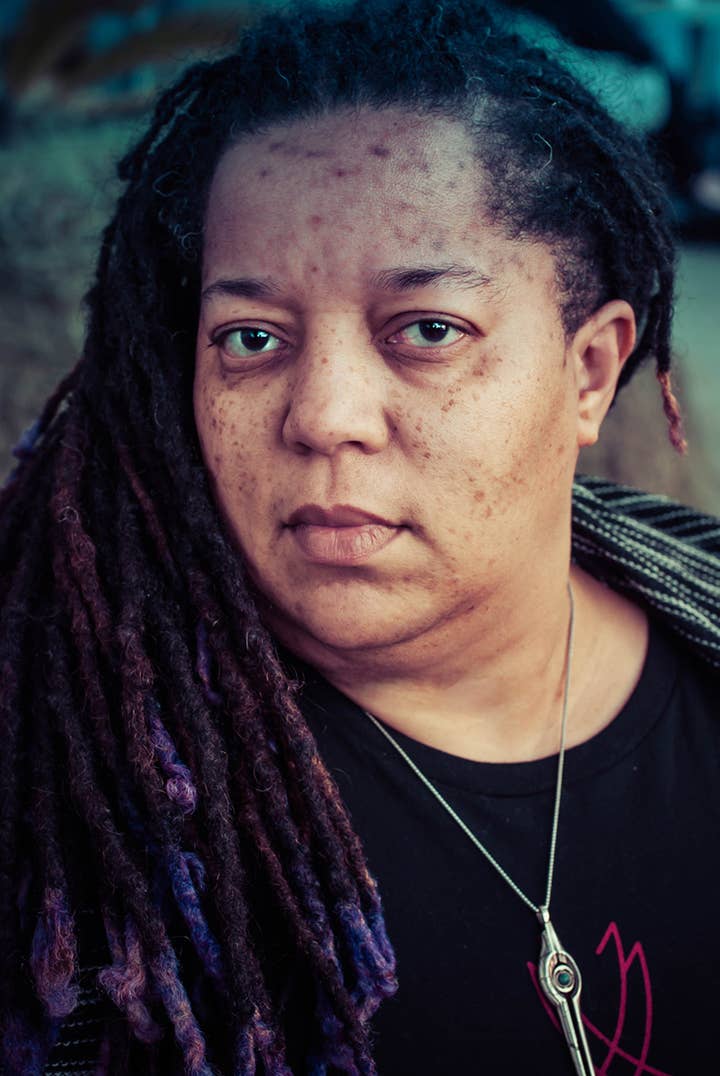
A lot of companies make assumptions that they're doing the right things, but fail to question what barriers are in place and what biases they're reproducing that are going to exclude certain groups.
"Often, there are some Black people who are probably thinking: I can't be my authentic self," Broomfield-Reid says about culture. "If I challenge, it might be seen as negative... You know, the stigma about the angry Black man or the angry Black woman for example. Black men in particular are impacted by inappropriate feelings towards them for lots of reasons. The perception is: they're maybe dangerous. So if I actually speak up, I might be seen as aggressive whereas somebody else will not be seen as aggressive.
"Some people use culture fit to get rid of the people that don't look like them, or they think aren't part of 'the gang'. And, to me, I would always challenge someone and [ask]: what do you mean by culture? Because I've had a discussion with somebody where they said they knew someone was good for the job but they weren't the right culture fit, because they were too old. That's just a discrimination. That's not culture fit."
Anderson adds that some companies might inadvertently favour certain types of people. During his experience giving job interviews at Ustwo, he realised the company was potentially more inclined to hire extroverted people, associating them with having strong ideas and not being afraid to voice them. While the example he gives is related to a personality type, you can easily apply that idea to race in some cases.
"At a certain point, we just sat down and we were like: wait, that's wrong. If someone is introverted they should also have equal chance of getting the job, and it should just be about how they can bring a different perspective, and maybe we need to change our culture to accommodate other people."
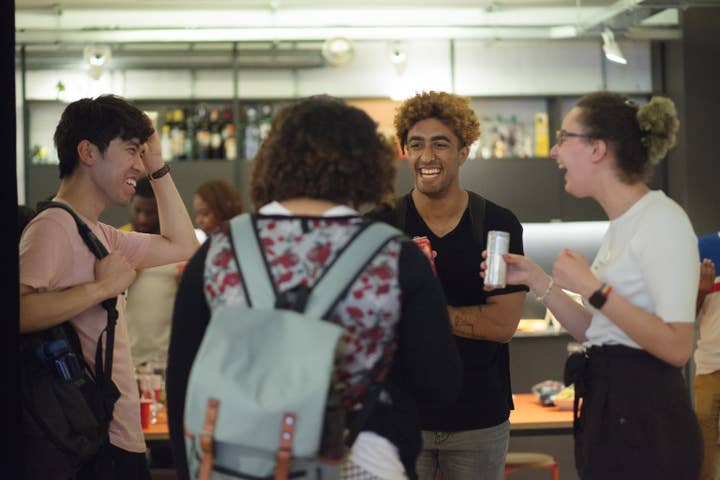
- The games industry has a racism problem
There is no way to look at an industry so severely lacking Black talent in senior roles without acknowledging that systemic racism is at play. While many like to believe that blatant racism doesn't happen anymore in the games industry, you don't have to look far to know that it is simply not true. And sometimes that racism presents itself in a less overt fashion.
"The microaggressions, and then by extension the racism, is quite common," Thompson says. "And even in the most liberal workspace, if you're going into that space as a Black person, you know that you're going to expect some kind of bullshit. I've often said as a Black, bisexual, working class woman, I've felt more comfortable being bisexual that I have been being Black in this industry."
"As a Black, bisexual, working class woman, I've felt more comfortable being bisexual that I have been being Black in this industry"
Shay Thompson
A lot of people remain unaware of what microaggressions are, so it often comes down to the Black professionals to actually educate their co-workers, which in turn adds to their mental load.
"Take a moment to consider whether 1) a comment or question is welcome, 2) think about what you're going to say and 3) really think about whether you should ask that question or make that comment at all," DePass points out. "Basically, read the room. If you do make an unwelcome comment and are called on it, don't get defensive. It's an emotional burden to even tell someone that they've done a microaggression and can often have not great results in the workplace."
Thompson adds: "As isolated events those are probably not that bad, but then when you package them all up together, that's sustained abuse that we have to go through and deal with in the industry, stepping into any new workplace. And that's just how it has to be and that is how it has been."
- The games industry has a cronyism problem
The games industry has traditionally favoured networking and existing connections as a way to promote individuals into more senior positions, rather than looking into diversifying its recruitment practices. This partly explains why Black people are severely lacking at the top.
"There's still a lot of cronyism that happens in the industry, as well as the idea that being more inclusive in hiring and promotion is still tied -- erroneously -- to lesser quality," DePass says. "There's still not much mentorship or opportunities for advancement, due to that cronyism. The lack of access ties back to opportunities to advance, because we don't have the years of experience, or aren't given chances to manage or develop other skills that get us seen as candidates for advancement."
Anderson says that the most Black people he's worked with since he started in games were at the lower levels. "My first job was the most diverse ever, and as I've progressed, [Black] people just gradually disappeared. So I'm like: wait, what's happened here?"
This leads to a vicious circle: because there are so few Black people in positions of leadership, there's a lack of role models that would incentivise Black kids to see the industry as a viable path. This also puts pressure on the very few who have made it, who end up in trailblazer roles they might not want.
"You can't be what you can't see. It's hard to project yourself into a space where you don't see someone already there"Michael Anderson
"There's no role models," Anderson continues. "If you're a young white guy starting out, you're like: I want to be the next Will Wright or Cliff Bleszinski. I can easily think of someone, I can put a big name there. So you have quite a clear goal of where you'd end up.
"But for me at least, I was like: am I doing really well? I'm not sure. Role models are a thing. I did a mentoring course that had a really cool tagline: you can't be what you can't see. It's hard to project yourself into a space where you don't see someone already there. And it all adds a bit of pressure. You need to become the trailblazer.
"It was really funny because at all the games industry events I went to, the only Black person I'd ever see was Des [Gayle, production manager at Fellow Traveller], who is co-founder of POC in Play with me! So I was like: is it just us who've made it to this particular level? And do we have to put our faces out now? What if you're just not that type of person who wants to be on everything all the time?"
What can the industry do to improve the retention and promotion of Black talent?
- Acknowledge the specific challenges that Black people face
When looking at your own company and trying to address its issues around racial inclusion, you first need to acknowledge the specific problems affecting Black people. You need to drill down and focus on their specific tribulations in the industry, as opposed to those of a larger demographic.
"I started in the industry two years ago and quickly realised this is a very white industry, so I wanted to see all the people who were in the industry that looked like me," Thompson says when explaining why she started Level Up Link Up. "I didn't believe that we just didn't exist. As a concept that was impossible to me. So I went to a couple of networking events and I realised that actually not only are there very few people that look like me, but all of the initiatives seemed to use 'BAME' as a blanket. Every ethnic group, every race has their different struggles, but in this industry Black people are very, very, very underrepresented and there [was] nothing out there specifically for us.
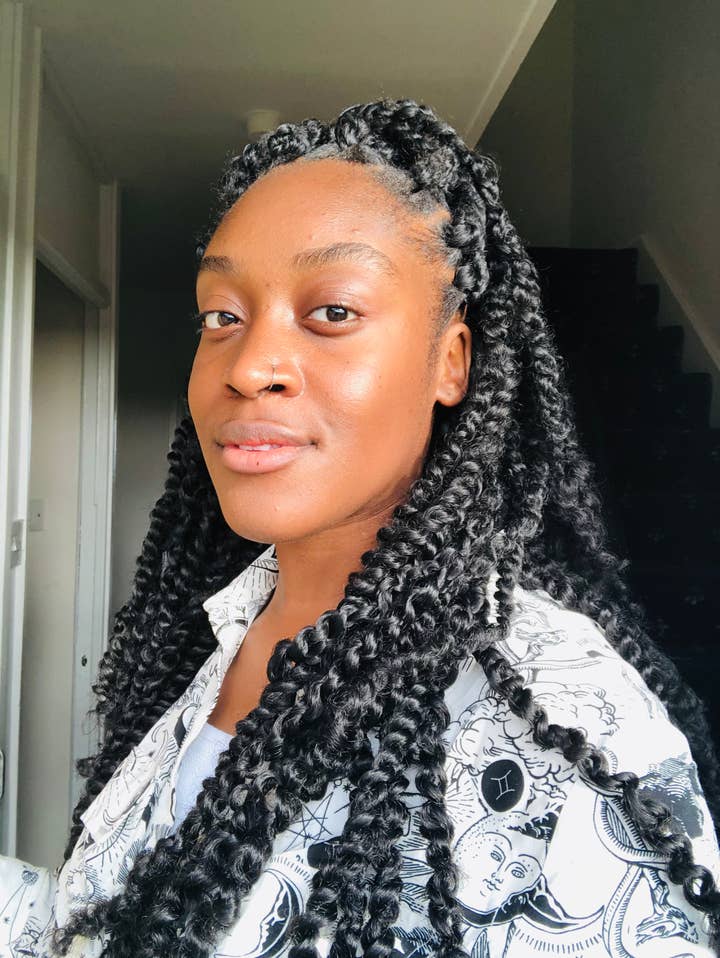
"I found that just British culture in general has a big issue with saying the name of the specific group they're talking about. So obviously the games industry not being a vacuum that exists on its own, those attitudes drip into the industry and then it makes it harder for people to just say: 'Actually, no, this is something disproportionately affecting Black people' or 'disproportionately affecting Asians.'
"People really struggle to use specifics. I see people talk about police brutality and that is something that specifically affects the Black community, and people still would say: 'Oh well that affects people of colour.' No, no, no. We have to use specifics. It's a drum that I've been beating for a while now."
When unsure about how to address a community and the issues affecting it, listen to its members and follow their lead. Broomfield-Reid also believes the industry should address specific groups and specific problems. "There's people who don't identify with 'people of colour' because they say: I may be from a minority ethnic community, but colour doesn't necessarily define me," she says. "BAME is still much an umbrella term, like you have LGBT+; it's a term that tries to encompass different people, different communities.
"I wouldn't say for example that I'm a BAME woman. I'd say I'm a Black woman. I don't mind the term BAME because it's an overarching term to describe something, but some people could think it's lazy, an easier way to describe different communities. So be led by the person you are talking to, because they will have their own perception and they might be able to say: actually, no, not BAME. I'm Chinese. I'm Indian. I'm Arab. I'm Middle Eastern. I'm African-Caribbean. Everybody has their own identity. Like with any umbrella term, people want to self-identify, and so they should."
- Budget your efforts and seek professional help
The first step to your workplace being more inclusive for Black people is to work with external partners to assess your existing structure, identify which parts of your business lack Black representation, and address potential retention and promotion bottlenecks.
"Working with a consultant, get somebody in and pay somebody for their time, look at all your structures, look at your hiring practices, and start from there," Thompson says. "Look at your own studios, look at your own environments. Call out. Actively call to make change in your industry, otherwise nothing's going to happen.
"I saw so many [initiatives] rolling out over the course of International Women's Day last year and Pride Month. When it came to October, which is Black History Month [in the UK], you know what I saw? I saw one studio saying something. It was Rocksteady. Maybe it was performative and for the cameras, but at least they did something.
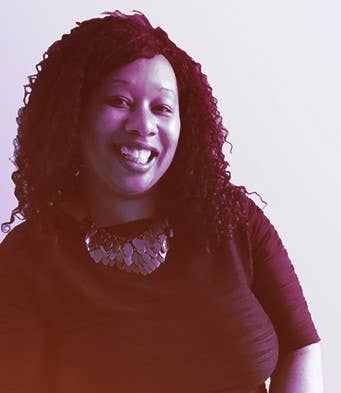
"If you have a studio that doesn't employ any Black people, ask yourself why. Why do people not feel comfortable enough to apply here? Or if you have people that came and left: why did they not feel comfortable in that studio? Something obviously happened. Get to the bottom of it. Figure it out and then from there, get uncomfortable and then start making a change."
Broomfield-Reid points out that there used to be race equality councils throughout the UK, but most have now been moved into wider diversity initiatives. This might have resulted in "race being lost" when it comes to diversity and inclusion action. But there are fortunately still options out there -- you just need to actively seek them out. "Some organisations have a specific race action plan," she says. "Recruit people just specifically looking at how race can be embedded more positively within workspaces."
Ustwo Games and POC in Play, for instance, have been partners since day one.
"POC in Play is constantly going to Ustwo Games, helping to support with meetups and offer travel bursaries to allow people from outside of London to come down," Anderson says. "We've got lists of all these sorts of different organisations that [Ustwo has] worked with."
One important aspect of supporting Black talent in the workplace is to put your money where your mouth is. Do not ask Black people to work for free to help you fix your diversity issues. Hire professional organisations that are championing Black workers.
"If you really want to make it happen, you need to set aside some budget and just have a strategy"Mike Anderson
"If you really want to make it happen, you need to set aside some budget and just have a strategy," Anderson says. "Make a five-year plan of: okay, we want to have this many interns, and we want this many [senior] people, and hopefully open up more junior roles and so on."
And if the help you need really can't come from the outside, make sure you put the right structures in-house to provide support and assess issues. That can take the form of a board within your company, alternate hiring practices, and more.
"We've got a diversity and inclusion board at Ustwo, so we're always talking about things like underrepresented groups, just making sure we're conscious and thinking about things," Anderson continues. "We also try to get the message in the right places. We're building up a strategy, we're putting together how much budget we need for things, and what our partners are."
- Organise consistent meetings and training
Unconscious bias training has been going from strength to strength over the past few years -- we dedicated a GamesIndustry.biz Academy guide to it earlier this year. However, when it comes to the issues affecting Black people, our interviewees expressed distrust towards both the method and the concept itself.
"At a certain point we need to actually just say that racism is a conscious thing that people are complicit in, on a day-to-day basis," Thompson says. "Regardless of whether or not you think it's the case, it is something that you're complicit in. And I guess that's where the unconscious part comes from, but this is a racist society, so there's no 'unconscious' about it."
Training is only going to be a useful tool if you make it consistent, and you don't rely on a single approach. DePass advises to be proactive and to schedule quarterly training instead of just reacting to something happening in the studio.
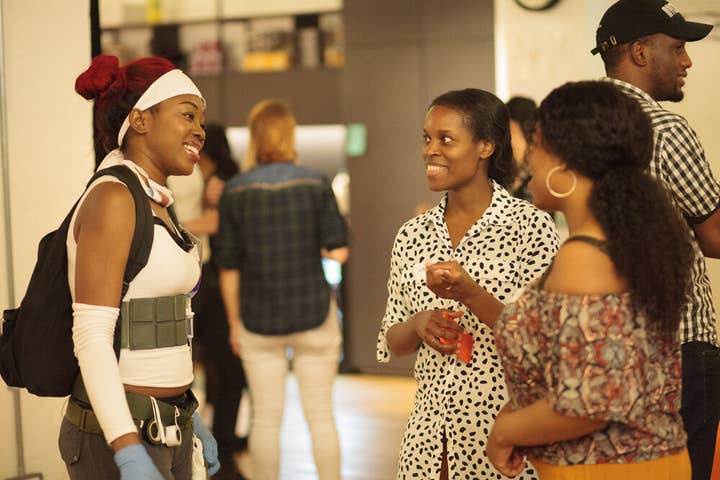
Unconscious bias is an area RightTrack Learning covers with its training, and Broomfield-Reid believes it's something people need to do in order to become aware of how biases impact their decisions. Ultimately, she agrees with DePass, but believes there needs to be more to the process. "Bias training is part of a bigger picture. [In addition to] the training, what are you doing? Are you actually looking at bias and how you can enhance practice within recruitment, within team development, within promotion?
"You don't want to go away with people thinking: Oh I've got bias and it's okay."Natasha Broomfield-Reid
"And also [look at] at the impacts. You don't want to go away with people thinking: 'Oh I've got bias and it's okay.' You want people to go away thinking: what is the impact that my bias is having on people and on society? How can I address that impact? So that's what we need to look at. Not just the training. What's next?"
Other types of training might be beneficial, she continues, such as coaching on how to manage difficult conversations. Nonviolent communication is another way to challenge the company's culture, focusing on more compassionate and empathic ways to communicate.
"You can do it in a really positive way, without judgment, saying what you'd like to see, what the impact might be and what next step [is]. We don't want to be in a place where we feel we can't say anything, you need to be able to have those discussions.
"A lot of teams could really value some training on managing difficult conversations, because that might support starting those conversations that we're having."
"Every role is impacted by diversity in some way"Natasha Broomfield-Reid
Making your company a welcoming place for Black professionals is an agenda, Broomfield-Reid adds, and it has to be a meaningful agenda. Diversity, inclusion and inequality has to be a topic that's discussed in senior management meetings on a regular basis, in a way that involves everyone.
"You have to make sure there's something meaningful or people aren't going to do it. Make it relevant to everybody. Every role is impacted by diversity in some way, so you've got to make it understandable for them.
"I was recently in a session with a group and Black, BAME, and people of colour were sharing their experiences. You could see some of the non-BAME people getting visually upset by [hearing it]. When people hear it, the penny starts dropping and they go: 'oh my gosh, yes, I have got privilege.' They don't have to think about where they walk at night, they don't have to think about where they live, they don't have to risk-assess situations. So they don't realise."
- Educate your HR department and have inclusive spaces
Human resources failures is a topic we touched upon following the recent wave of abuse allegations in the industry, especially at Ubisoft. But this also applies to racism, with Black people sometimes gaslit into downplaying incidents of racism.
"Until HR actually serves employees and isn't a shield for the company not a whole lot will change"Tanya DePass
"Take complaints of racism seriously, have Black and POC staff in HR that can handle complaints," DePass says. "Encourage staff to report these incidents and not be afraid of doing the right thing to keep the workplace safe. This probably means tearing the whole thing down and starting over in some cases.
"Until HR actually serves employees and isn't a shield for the company not a whole lot will change. Until HR is allowed to do anything about racist employees and management, nothing can be done."
Making sure HR understands the wider implications of racism -- not just overt racism, but the microaggressions as well -- is an essential step to making your company more inclusive towards Black people.
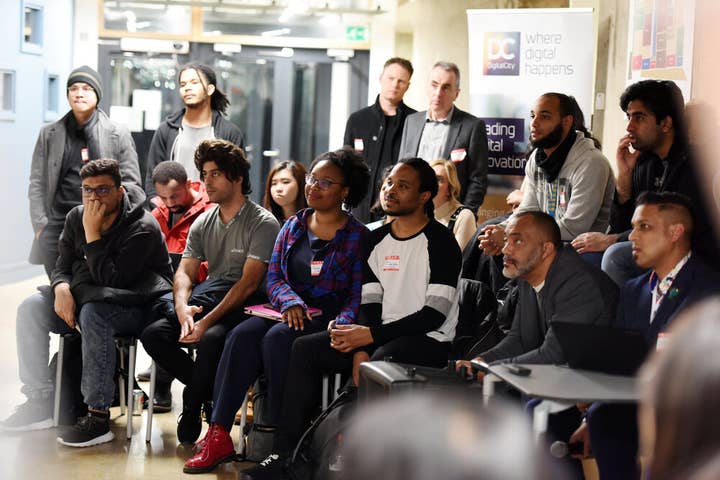
"If someone says something really blatantly racist, it can't be excused -- it's easy for HR to say: 'Oh no, that's a dismissal'," Broomfield-Reid says. "Often it's not necessarily the blatant racism that exists, it's the micro behaviours. It might be the isolation -- like [Black professionals] not getting included in projects and not being invited when people have meals or drinks. It could be those other micro-behaviours which when built up can have such an impact on somebody's mental health.
"So it's about making sure that HR is understanding the wider aspect of racism, recognising that it's not always the obvious. If someone is telling you that they feel that they've been impacted by racism, investigate it. I'd imagine there's very few cases where there's nothing in it."
"Listen to lived experiences, look at your processes and give people inclusive spaces to talk and be able to be themselves"Natasha Broomfield-Reid
To prevent distrust from the employees and gaslighting from HR, having a group for Black employees within the company can be a good opening -- it can be a place of discussion among peers that will make it easier to challenge HR.
"Listen to lived experiences, look at your processes and give people inclusive spaces to talk and be able to be themselves, and not hide part of themselves if they so wish," Broomfield-Reid continues. "Have inclusive spaces where people can talk and people can speak and can challenge positively, if there is an issue."
- Consider equality impact assessments
To address issues about retention and promotion of Black talent, Broomfield-Reid also recommends two tools: an equality analysis and an equality impact assessment. The goal is to make sure that, whatever a company is doing, it's not disadvantaging anybody. While these are UK resources, they can still be valuable and applicable in any territory.
"People often don't do impact assessments or equality analysis anymore," Broomfield-Reid says. "They were very popular and very common when the Equality Act came in [in 2010], but I cannot stress enough that they're a really good project management tool, particularly for the games industry. They are tools that you can really use and go: okay, what can I do here?"
She stresses that it can be applied to a wide variety of projects, and gives a practical example. "I'm talking about even the terminology in coding. You can have a term like 'slave' in coding. Code has got some really discriminatory terms and they're actually proper terms used in [this] field.
"So some of these things are built in and some organisations are looking at it being like: what can we do to address this? Anything you do, look at how you can, right from the beginning, be proactive rather than reactive."
- Set up a mentorship system and make space for Black voices
Having a mentorship programme within your organisation can be an extremely good tool to lift up young Black talent. You might also consider taking part in mentorship initiatives outside of your company, and partnering with schools on work experience placements. This is a way to bring your experience, expertise, and resources to talent that might not otherwise have access.
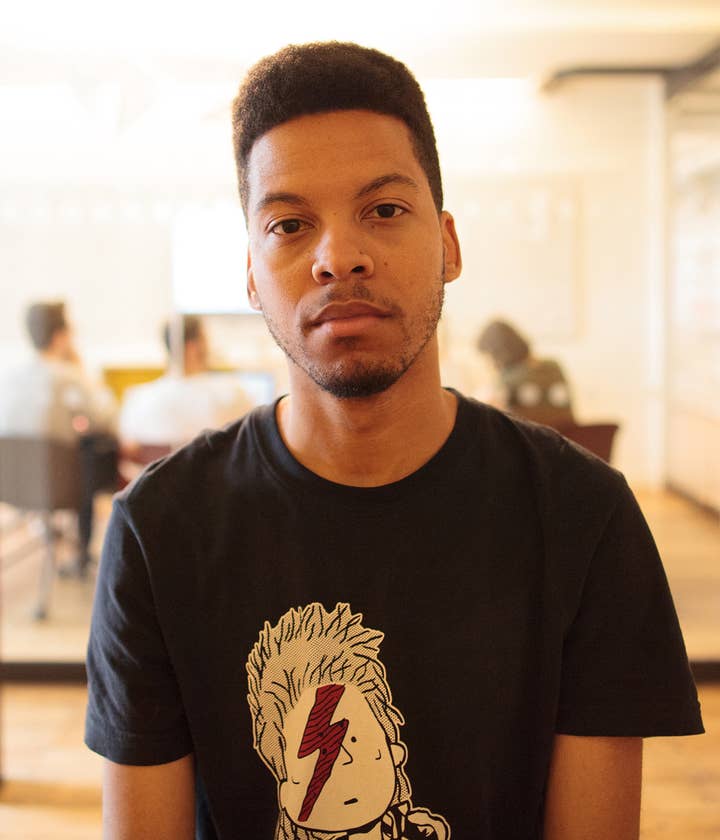
"Before lockdown, we were aiming to have a person come in [every quarter], do work experience with us for a week or two -- paid," Anderson says. "We're paying the London living wage, and we would try and deliberately cast our net into areas where we feel people wouldn't naturally be able to do things like this.
"[Our first] recipient of that got in the credits for the game that we launched and they got a chance to see every discipline, and how they all interact, and get away with a better idea of where they would like to go with their career in games."
Anderson himself benefited from mentorship from the Creative Mentor Network. But he also highlights the importance of senior staff mentoring more junior people within a company.
"In the wake of all the Black Lives Matter protests, it's the first time I've seen such an outpouring of people volunteering to offer help, and there's a bit of high-end awareness of issues that affect different communities that people were previously not aware of and now I've seen a lot of people just be: I'm prepared to offer like an hour a week to anyone who needs it, to just help give some guidance."
Helping young Black people to find their way in an industry that can be overwhelming at first glance is crucial to making a change. And that can only happen with white people actively trying to help as well.
"White people in this industry, it is your job to fix this -- this isn't something I can fix"Shay Thompson
"I begged people to come to my [Level Up Link Up] events and meet this new bastion of talent who are actively being denied a foot into the industry. Come in and meet, give them advice, give them a helping hand. Stop thinking that it's not your problem. White people in this industry, it is your job to fix this -- this isn't something I can fix. I have very little power.
"[You need to] realise that the road to change isn't going to be an easy one. You need to actively seek out people. Why do you think the #drawingwhileblack and #blackgamedev hashtags exist? Go in there, scroll through those hashtags, find all the new talent that are just begging to be utilised, and actively lift them up into the industry. That's what it's going to take for there to be change."
- Make a long-term commitment towards the inclusion of Black talent
This year's Black Lives Matter protests should not be remembered as a fleeting moment in history. Attempts at inclusion should not be reactive. The movement is about ongoing change and fighting systemic racism in the long term. You need to keep that idea at the forefront of your efforts, as change takes time.
"What people need to do is start getting used to being uncomfortable," Thompson says. "I think the reason why we're in this situation is because for so long the matter of race has just been this thing that people have been able to slip around, specifically in this industry.
"Running Level Up Link Up, I've reached out to so many studios and I've said: do you have any placement spots available for a couple of months where people can just come in and absorb as much experience as they can? I was told it wasn't possible. I asked about mentorship, just people offering their time whenever they could to mentor young Black people who want to get into the industry. I was told it wasn't possible.
"People need to stop seeing the conversations about race as a way to assuage their guilt"Shay Thompson
"Then all of a sudden the [BLM] protests erupted around the world and then I was told it was possible. Obviously I don't want to look a gift horse in the mouth, but that response wasn't because they wanted things to change, they wanted to assuage their guilt. And I know that sounds very harsh to say, but people need to stop seeing the conversations about race as a way to assuage their guilt or as an issue of morality. Us changing the industry needs to be because you guys think it's the right thing, not because it's something that you think you should be seen to be doing."
Changing our approach towards inclusion of Black talent is crucial then, and Broomfield-Reid adds that it's not going to happen overnight. In fact, this is an ongoing problem that we'll always have to address in some form.
"Diversity and inclusion, and embedding it, is never over. So it's about setting realistic time scales and ongoing messaging about the importance of diversity and inclusion, how it relates to what you are doing as an organisation, how it relates to having a good inclusive culture.
"There might be somebody who might be like: I don't really get this inclusion rubbish. I don't get this Black Lives Matter. But if you keep sharing the message, they might go: 'Oh, I sort of get it now.' So you have to keep giving the message, make sure [you] try different methods to keep it on the agenda."
Words of advice for Black people who just entered the games industry
Throughout our discussions, the interviewees offered words of advice to young Black people who have just started in the industry. The resounding feeling was one of hope and mutual assistance.
"Follow companies and organisations like POC in Play. If you join a company and you're a junior, you might be the first Black employee there -- it's a lot of pressure. It's just nice to know you're not alone. There are a bunch of us all in the industry and it'll be cool if you connect with [us]. POC in Play or the UK games industry Slack has a bunch of [dedicated] channels. There are people to speak to about things if you have a bit of a bad experience." -Mike Anderson
"Work to the best of your ability, do the job well, and do it to the highest standard. What opportunities could you get? Could you actually be mentored or sponsored by someone in the organisation? And, in a positive way, challenge. One thing that is quite popular in a lot of organisations is network groups, employee engagement groups, all diverse and inclusive. Try and get involved and get the Black voice heard." -Natasha Broomfield-Reid
"Find mentorship before you enter, while you're in, and if you decide it's not for you, be honest as you can in an exit interview." -Tanya DePass
"It's going to be hard -- I'm not even going to try and sugarcoat that. But this industry needs your voice. We have got to this point in the industry where we're starting to see a lot of the same games come out. We need a whole host of diverse voices. I don't want to say: just swallow it and pretend all this bad stuff isn't happening. No. Find peers. There is a network of people like you who want to uplift you and protect you -- and I will do my damn best, even if it's the last thing I do, to protect everybody. Don't give up." -Shay Thompson
To read more on the topic, head to this article from Aaron Lee, about Black representation in the UK games industry.
More GamesIndustry.biz Academy guides to Working in Games
Our guides to working in games cover everything from how to get a job in the industry to creating the right workplace culture:
